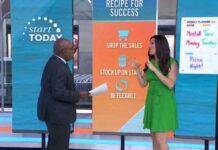Sonia Estefanía Palacios Díaz is on a mission to empower women water harvesters in Mexico City to combat drought and the unreliable public water system. She, along with a group of other women in the cooperative Pixcatl, is working to keep rainwater harvesting systems functioning in lower-income areas like Iztapalapa. The group educates residents on how to maintain these systems and provides low-cost options for additional materials.
The prolonged drought and inconsistent public water delivery in Mexico City have led many residents to turn to rainwater harvesting. Companies like Isla Urbana have installed thousands of rain catchment systems across Mexico, with the government also investing in the installation of thousands of systems. However, there is a lack of education and resources to maintain these systems, leading to them falling into disuse or being sold off by residents.
Palacios Díaz, who has experienced water scarcity in Iztapalapa for as long as she can remember, is passionate about teaching others how to harvest rainwater. She has taken a government training program to become an installer and is now working with Pixcatl to maintain existing systems and educate residents on their benefits. The cooperative has transformed the daily water use of many residents, like Sara Huitzil Morales, who now have access to clean and safe water for various purposes.
Rainwater harvesting has become a crucial solution for many in Mexico City as the reservoirs supplying the capital are perilously low due to the ongoing drought. Palacios Díaz and the members of Pixcatl are not only working to maintain existing systems but also developing personalized designs for clients’ specific needs. They hope to inspire more women and young girls to get involved in water harvesting and show that they can use tools and make a difference in their communities.
Looking ahead, Palacios Díaz dreams of seeing rainwater systems in markets, malls, and other community spaces throughout Mexico City. By empowering women like herself and the members of Pixcatl, she believes they can set an example for others who want to combat water scarcity and contribute to a more sustainable future for their city.

















